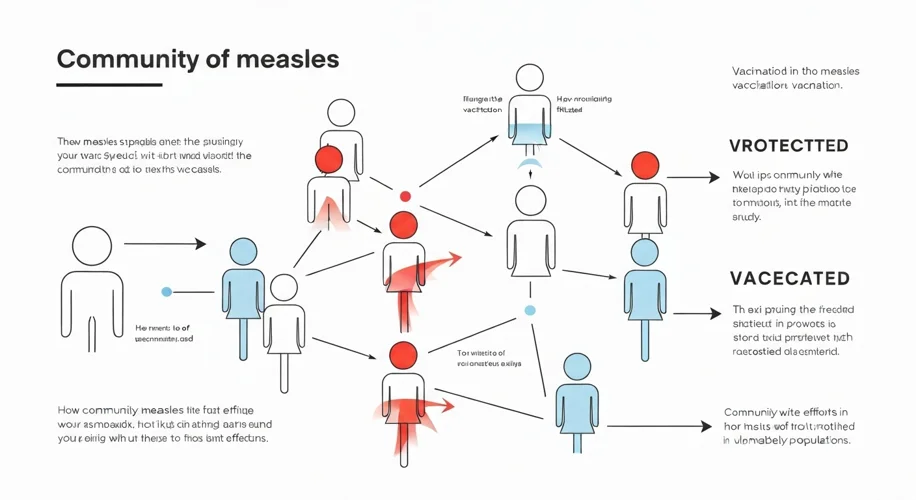It’s concerning to see measles making a comeback in the U.S. today, August 23, 2025. This highly contagious viral disease, which can cause serious complications, is a reminder that vaccination efforts are crucial.
As measles cases rise, states like Texas offer valuable insights from their own experiences with outbreaks. Understanding these lessons can help us all stay informed and protect our communities.
What is Measles?
Before we dive into the lessons, let’s quickly recap what measles is. It’s an airborne disease, meaning it can spread easily through coughing and sneezing. Symptoms typically include a rash, high fever, and cough. While many recover, measles can lead to pneumonia, encephalitis (swelling of the brain), and even death, especially in young children or those with weakened immune systems.
The good news is that the measles vaccine is highly effective. Two doses are recommended for lifelong protection. However, when vaccination rates drop in a community, the virus can spread rapidly.
Lessons from Texas Outbreaks
Texas has faced several measles outbreaks in recent years, offering a real-world case study. One of the most significant lessons learned is the critical importance of maintaining high vaccination coverage. When vaccination rates dip below the threshold needed for herd immunity (typically around 95% for measles), outbreaks become much more likely.
Community Engagement is Key
These outbreaks highlighted that public health efforts need to go beyond just administering vaccines. They require robust community engagement. This means clear communication, addressing misinformation directly, and working with local leaders and trusted community members to build confidence in vaccines. In Texas, successful interventions often involved localized outreach to ensure all families had access to information and the vaccine, regardless of their background or location.
The Impact of Misinformation
Like many public health challenges, measles outbreaks are often fueled by misinformation. When false claims about vaccine safety spread, they can erode trust and lead parents to delay or refuse vaccination for their children. Public health officials in Texas found that a proactive approach, using data and evidence-based information, was vital in countering these narratives.
Swift Response Matters
Early detection and a rapid response are also critical. When a case is identified, public health teams need to act quickly to identify and notify anyone who may have been exposed. This includes contact tracing and offering post-exposure prophylaxis (like the vaccine or immunoglobulin) to prevent further spread.
Looking Ahead
As we navigate the current rise in measles cases across the U.S., the experiences of states like Texas serve as a vital guide. They underscore that strong vaccination programs, community trust, clear communication, and swift action are our best defenses against this preventable disease. Protecting ourselves and our neighbors starts with staying informed and ensuring we’re all up-to-date on our vaccinations. It’s a shared responsibility that protects the health of our entire community.

